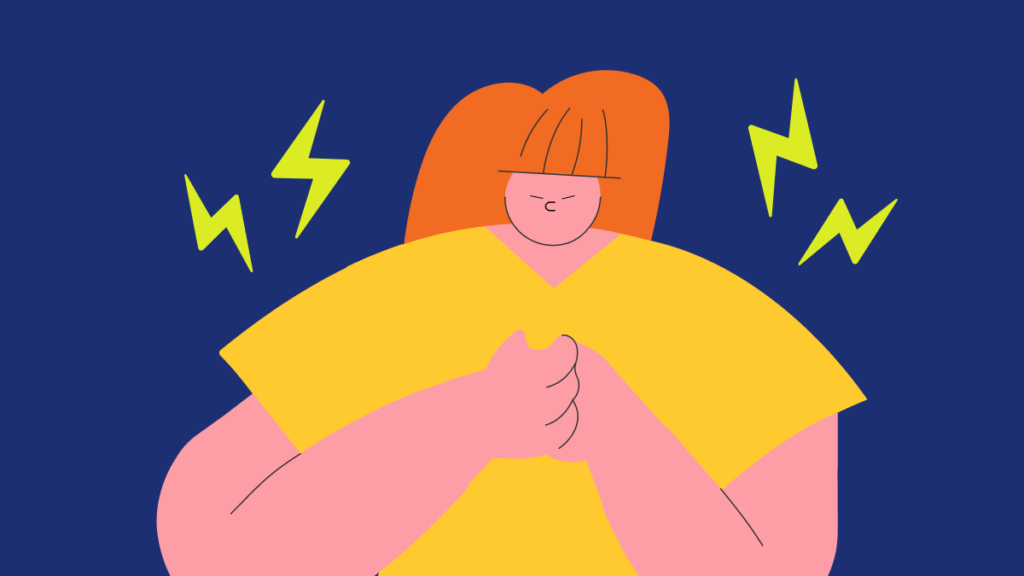If we asked you to picture someone with ADHD, you might imagine a restless young boy, but ADHD affects adults too—nearly 7% of adults worldwide were estimated to have the condition in 2020. Additionally, it’s not just a male condition; females also have ADHD but are often underdiagnosed due to different symptom presentations.
Moreover, while hyperactivity is often seen as the hallmark of ADHD, there’s more to the condition than that. So, how do you know if you have ADHD? Who can provide an ADHD diagnosis in Singapore? What can you expect from an ADHD test? Read on to find out.
What is ADHD?
ADHD is a condition that involves persistent inattention and/or hyperactivity-impulsivity, which can impact everyday life.
For example, inattention might make it challenging to focus at school or work, leading to missed deadlines and mistakes. It can also cause disorganisation and forgetfulness, making it tough to stay on top of daily tasks and appointments.
On the other hand, hyperactivity-impulsivity can make it hard to control impulses or activity levels, potentially straining relationships and leading to risky decisions with negative outcomes.
In Singapore, ADHD affects around 5% of primary school students. Although there are no specific studies on the prevalence of adult ADHD in Singapore, a 2021 study indicates that it impacts about 3-7% of adults worldwide.
Do I have ADHD?
For ADHD to be diagnosed, an individual must meet six or more symptoms in either category. For older adolescents and adults (age 17 or older), at least five symptoms are required.
Based on the Diagnostic and Statistical Manual of Mental Disorders, Fifth Edition (DSM-5), which healthcare professionals use to diagnose mental health conditions, these symptoms are:
Inattention
- Often fails to give close attention to details or makes careless mistakes
- Often has difficulty sustaining attention in tasks or play activities
- Often does not seem to listen when spoken to directly
- Often does not follow through on instructions and fails to finish schoolwork, chores, or duties in the workplace
- Often has difficulty organising tasks and activities
- Often avoids, dislikes, or is reluctant to engage in tasks that require sustained mental effort
- Often loses things necessary for tasks or activities
- Is often easily distracted by extraneous stimuli
- Is often forgetful in daily activities
Hyperactivity-impulsivity
- Often fidgets with or taps hands or feet or squirms in their seat
- Often leaves seat in situations when remaining seated is expected
- Often runs about or climbs in situations where it is inappropriate
- Often unable to play or take part in leisure activities quietly
- Is often “on the go” acting as if “driven by a motor”
- Often talks excessively
- Often blurts out an answer before a question has been completed
- Often has trouble waiting his/her turn
- Often interrupts or intrudes on others
They should also meet the following criteria:
- Symptoms have persisted for at least six months.
- Symptoms are inconsistent with their developmental level.
- Symptoms clearly reduce the quality of, social, school, or work functioning.
- Several symptoms were present before the age of 12.
- Several symptoms are present in two or more settings.
- Symptoms are not solely a manifestation of oppositional behaviour, defiance, hostility, or failure to understand tasks or instructions.
- Symptoms do not occur exclusively during the course of schizophrenia or another psychotic disorder
- Symptoms do not occur exclusively during the course of another mental health disorder
Remember, symptoms of ADHD might be linked to that of other psychotic or mental health disorders. So, instead of Googling “Do I have ADHD?” and self-diagnosing, it’s best to consult a professional. (Only clinical psychologists and psychiatrists can provide an ADHD diagnosis in Singapore.)
ADHD diagnosis in Singapore
At Intellect Clinic, the initial evaluation for ADHD takes 3 to 5 hours. During this process, our clinical psychologist will use the DSM-5 and a range of standardised tools. These include
- For children:
– IQ tests
– Test of Everyday Attention for Children, Second Edition (TEA-Ch2)
– Conners 4™
– NEPSY-II
- For adults:
– Weschler’s Adult Intelligence Scale 4th Edition (WAIS-IV)
– Conners Continuous Performance Test™ (CPT)
– Conners Continuous Auditory Test of Attention™ (CATA)
– Conners Adult ADHD Rating Scales™ (CAARS)
– Delis-Kaplan Executive Function System™ (D-KEFS)
– Weschler’s Memory Scale 4th Ed (WMS-IV)
(While there is no adult-specific diagnostic criteria, the proposed assessment guidelines for adults tend to emphasise history-taking.)
The assessment costs $1,850 (Singapore dollars) and includes a comprehensive diagnostic report that can be verified by authorities. This is helpful for children with ADHD who wish to apply for examination accommodations according to the guidelines set by Singapore’s Ministry of Education (MOE).
This report will also assist your clinician in monitoring neuropsychological symptoms and developing an effective treatment plan for ADHD.
ADHD treatment in Singapore
After a precise diagnosis is established, your clinician will create a personalised treatment plan that may include Cognitive Behavioral Therapy (CBT), Dialectical Behavior Therapy (DBT), and compassion-focused approaches.
1. Cognitive Behavioural Therapy (CBT)
CBT (Cognitive Behavioral Therapy) aims to identify and change unhelpful thought patterns to positively influence emotions and behaviours. For individuals with ADHD, CBT can help reshape how they think and feel about their condition.
In CBT, one frequently used technique is cognitive restructuring. This process involves recognising and challenging dysfunctional thoughts. Unhelpful thoughts like “If I can’t meet deadlines at work, I’m not a competent employee,” or “If I forget important dates, I’m a bad partner,” can often lower our self-esteem, leading to low mood and anxiety. You’ll identify your own unhelpful thought patterns that contribute to emotional and behavioural challenges, such as procrastination, and then develop more sustainable and effective coping strategies.
2. Dialectical Behaviour Therapy (DBT)
DBT focuses on accepting difficult internal experiences while working to resolve them. Individuals with ADHD may appreciate this dichotomy as managing its symptoms can be a long-term endeavour.
In DBT, you’ll learn skills that create a space between your emotions and your actions. For instance, if you often interrupt others when you feel frustrated, the STOP (Stop, Take a Step Back, Observe, Proceed Mindfully) skill can help you stay aware, regulate emotions in the moment, and respond more thoughtfully. Over time, this approach will enhance your interpersonal effectiveness.
3. Compassion Focused Therapy (CFT)
CFT is designed to help individuals develop self-compassion and manage self-criticism and shame. For those with ADHD, it can be especially effective in promoting acceptance of their traits, leading to greater self-understanding and care.
In CFT, you’ll learn strategies to replace harsh self-judgments with more compassionate thoughts. For instance, you might explore compassion from a third-person perspective and practice applying it to yourself. This could involve role-playing or letter-writing exercises where you speak or write to yourself or others from a place of compassion.
ADHD medication in Singapore
The management of ADHD often involves medication, especially when ADHD symptoms significantly impact daily functioning. Consultation with a psychiatrist is essential to determine the most appropriate treatment approach for each individual.
1. Stimulant medications
Methylphenidate is the most commonly prescribed stimulant in Singapore. Available in various formulations, such as Ritalin (immediate-release), Medikinet (modified-release), and Concerta (extended-release), these medications help increase attention and reduce hyperactivity by enhancing dopamine and norepinephrine activity in the brain.
Lisdexamfetamine (Vyvanse), approved in Singapore in 2023, is another stimulant option. It is a prodrug that converts to dextroamphetamine in the body, offering an alternative for patients who may not respond well to methylphenidate .
2. Non-stimulant medications
For individuals who cannot tolerate stimulants or have contraindications, non-stimulant medications are considered. Atomoxetine (Strattera) is a selective norepinephrine reuptake inhibitor that is taken daily and may take several weeks to show full effects.
Guanfacine (Intuniv), another non-stimulant, is also used to treat ADHD symptoms. It may be prescribed when other medications are ineffective or cause undesirable side effects.
If medication is deemed beneficial for you, we will refer you to a partner psychiatrist within Intellect Clinic’s network. In such cases, some treatment sessions may take place at their clinics.
Learn to manage ADHD at Intellect Clinic
At Intellect Clinic, we practise evidence-based treatment and tailor intervention plans based on individuals needs and differences. Our clinicians utilise an eclectic therapeutic approach to address your presenting issues related to ADHD symptoms as well as emotional difficulties.
50-minute sessions with our counsellors and clinical psychologists are priced at $160 and $240 (Singapore dollars) respectively, and we offer appointments at our clinics in:
- Marina One
- Dhoby Gaut
- Tanjong Pagar
- Woodleigh
- Tembeling









